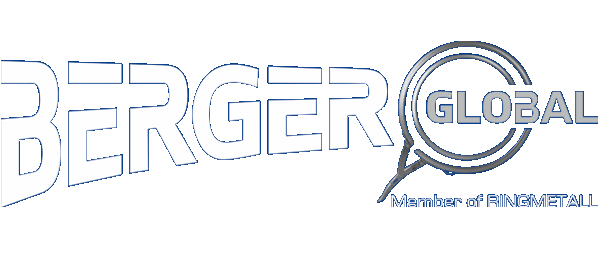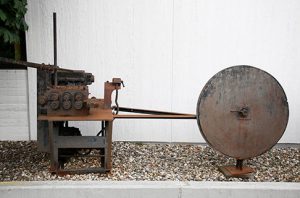
History
1950
The hardware and machinery factory August Berger GmbH was founded in 1950 by August Berger in Landau. The focus of the work lay in “straight bending”, i.e. recycling of structural steel. This area of work led to the development and manufacture of clamping rings with the then 9.9 cm standard diameter, intended above all for the food industry. This was followed by the production of special clamping rings for the chemical industry.
1975
A cooperation agreement with the company Todeschini in 1975 saw the entry into the Italian market. This contract benefited both companies. Todeschini became the first European supplier of BERGER Spannringen and BERGER was able to further improve its machine technology thanks to the cooperation.
1988
In 1988, BERGER Closures Ltd. was founded in Peterlee, Great Britain. From this point onwards, BERGER’s goal became to expand its European activities and to remain as close to the customer as possible by establishing new locations throughout Europe to ensure optimal customer service.
1998/1999
1998 and 1999 saw the founding of Auguste BERGER S.A.R.L. in Niederlauterbach, France, and BERGER Group Europe Iberica S.L. in Reus, Spain.
2000
Since 2000, BERGER has been increasingly focusing on the automation of its production.
2012
The company entered the Chinese market in 2012 with the founding of BERGER Closing Rings Co. Ltd. in Changshu, China. In the same year, CEMSAN Metal Parca Imalat Limited acquired Sirketi in Istanbul, a leading tensioning ring manufacturer in Turkey. This expanded global positioning and allowed customers in the Middle East to be served.
2013
The following year saw the purchase of Berger Italia S.r.l. in Valmadrera and S.G.T. S.r.l. in Albavilla, both in Italy. The former also specialized in the production of clamping rings, while the latter specialized in the production of latches and accessories. Thanks to the expansion, the company was able to enter the tinplate industry.
2015
During the 2015 fiscal year, American Self Industries Inc., based in Birmingham, Alabama, and its subsidiaries in Texas and Pennsylvania, were integrated into the group. In addition to the production of clamping rings, Self Industries also focuses on the production of seals.
2016
The purchase of BERGER Metallwarenfabrik GmbH in Sessenhausen, Germany, in 2016, led to the expansion of the product range to include lids. Over the years, all the machines used by BERGER in its production were also developed further to meet clamping ring requirements. All locations house the same machine park so that all customer requirements can be met and produced in parallel.
2017
In summer 2017 BERGER Group acquired the LATZA GmbH, who specialise in clamping rings and closures that are used to transport dangerous goods safely. This acquisition perfectly enhances the range of products of the BERGER Group. The product portfolio of Latza comprises clamping rings and safety closures of 90-600 mm diameter, in different material widths and thickness, with various surface coating zinc, tin, plastics, inclusive corresponding pin seals.
2020
The company, which was acquired in 2015 and has since been renamed Berger US, acquires another clamping ring producer in the USA with headquarters in Chicago, Illinois. The business activities of Sorini Ring Manufacturing were acquired with effect from January 1, 2020 and fully integrated into the US subsidiary. This gives the Berger Group considerable potential for growth through synergies and efficiency measures.
2021
Acquisition of the company HOSTO Stolz GmbH & Co. KG (“HOSTO”) based in Neunkirchen, Germany. The company HOSTO was considered the largest competitor in the field of clamping ring production for the tinplate industry in Europe. The company is known for very high quality products. At the time of the takeover, HOSTO employed around 80 people and, with the consolidation completed, made a significant contribution to the company’s results.

 Global
Global